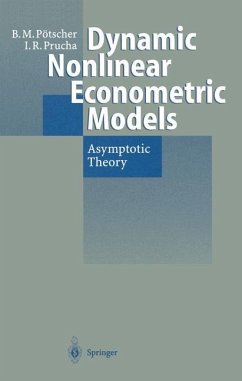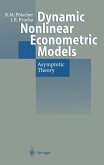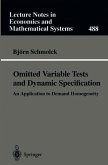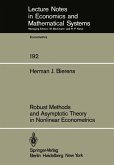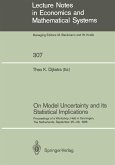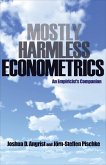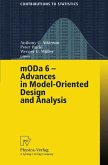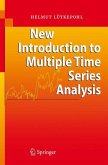The book provides an extensive discussion of asymptotic theory of M-estimators in the context of dynamic nonlinear models. The class of M-estimators contains least mean distance estimators (including maximum likelihood estimators) and generalized method of moments estimators. In addition to establishing the asymptotic properties of such estimators, the book provides a detailed discussion of the statistical and probabilistic tools necessary for such an analysis. The book also gives a careful treatment of estimators of asymptotic variance covariance matrices for dependent processes.
Many relationships in economics, and also in other fields, are both dynamic and nonlinear. A major advance in econometrics over the last fifteen years has been the development of a theory of estimation and inference for dy namic nonlinear models. This advance was accompanied by improvements in computer technology that facilitate the practical implementation of such estimation methods. In two articles in Econometric Reviews, i.e., Pötscher and Prucha {1991a,b), we provided -an expository discussion of the basic structure of the asymptotic theory of M-estimators in dynamic nonlinear models and a review of the literature up to the beginning of this decade. Among others, the class of M-estimators contains least mean distance estimators (includ ing maximum likelihood estimators) and generalized method of moment estimators. The present book expands and revises the discussion in those articles. It is geared towards the professional econometrician or statistician. Besides reviewing the literature we also presented in the above men tioned articles a number of then new results. One example is a consis tency result for the case where the identifiable uniqueness condition fails.
Many relationships in economics, and also in other fields, are both dynamic and nonlinear. A major advance in econometrics over the last fifteen years has been the development of a theory of estimation and inference for dy namic nonlinear models. This advance was accompanied by improvements in computer technology that facilitate the practical implementation of such estimation methods. In two articles in Econometric Reviews, i.e., Pötscher and Prucha {1991a,b), we provided -an expository discussion of the basic structure of the asymptotic theory of M-estimators in dynamic nonlinear models and a review of the literature up to the beginning of this decade. Among others, the class of M-estimators contains least mean distance estimators (includ ing maximum likelihood estimators) and generalized method of moment estimators. The present book expands and revises the discussion in those articles. It is geared towards the professional econometrician or statistician. Besides reviewing the literature we also presented in the above men tioned articles a number of then new results. One example is a consis tency result for the case where the identifiable uniqueness condition fails.

